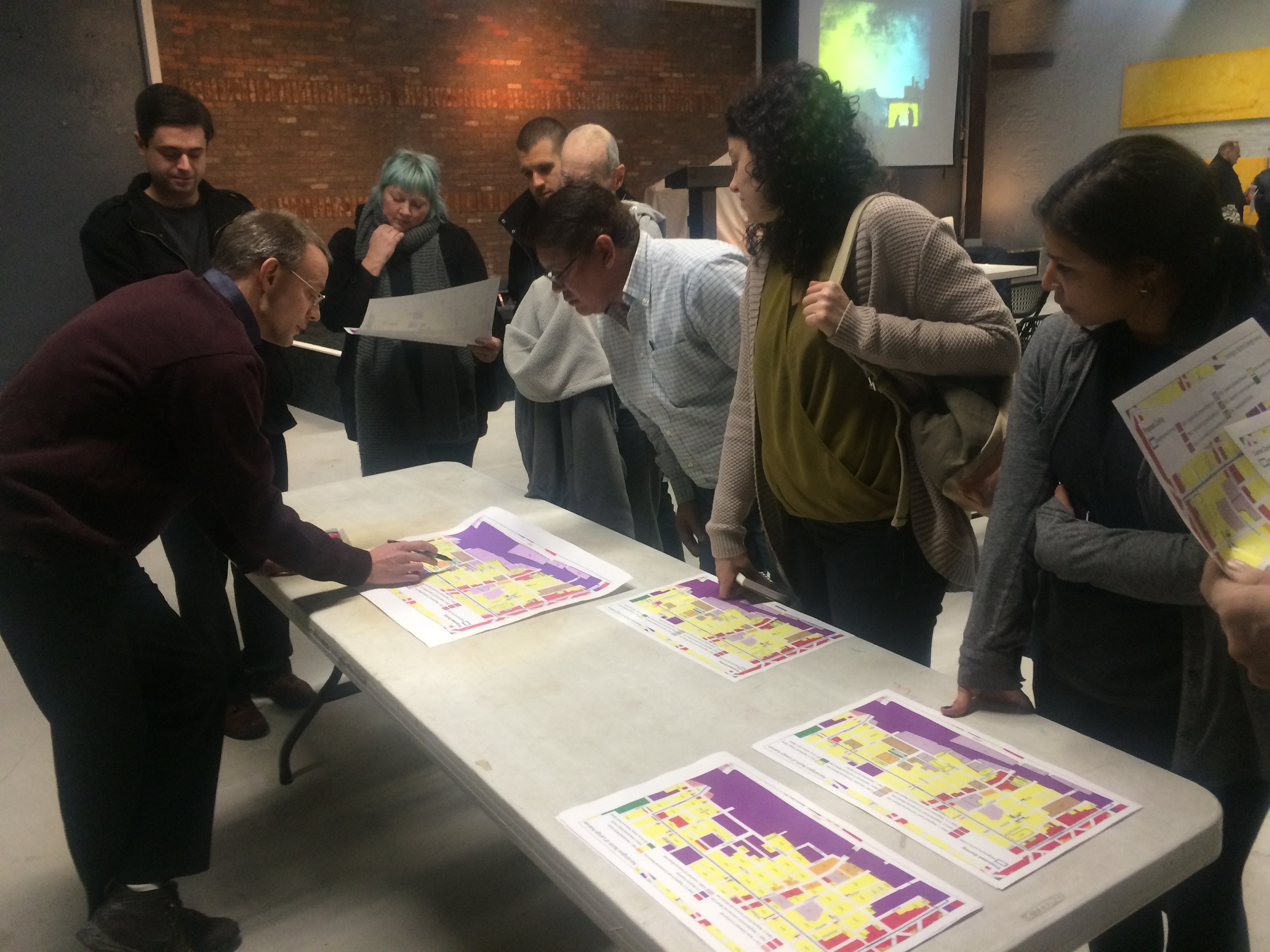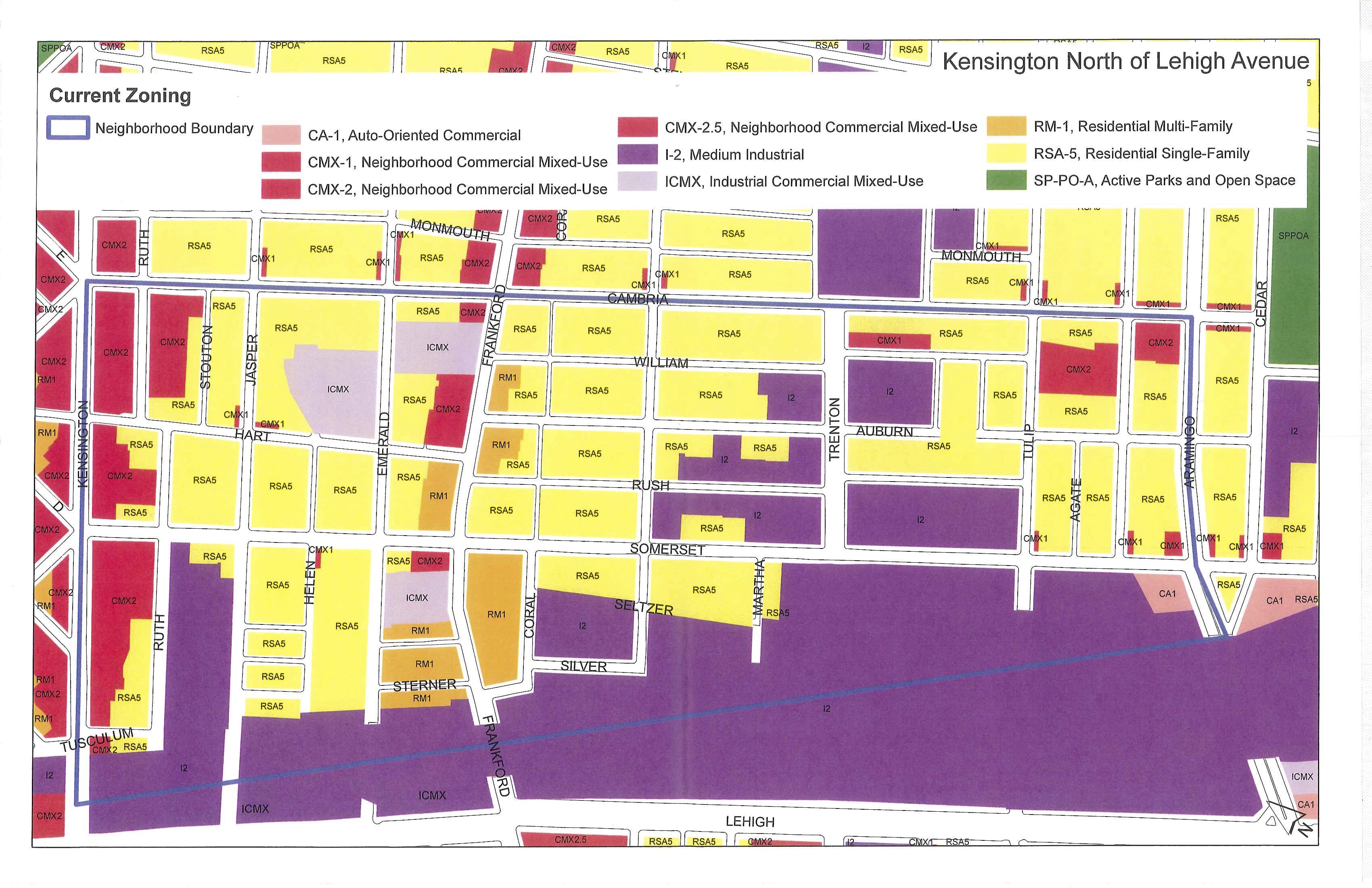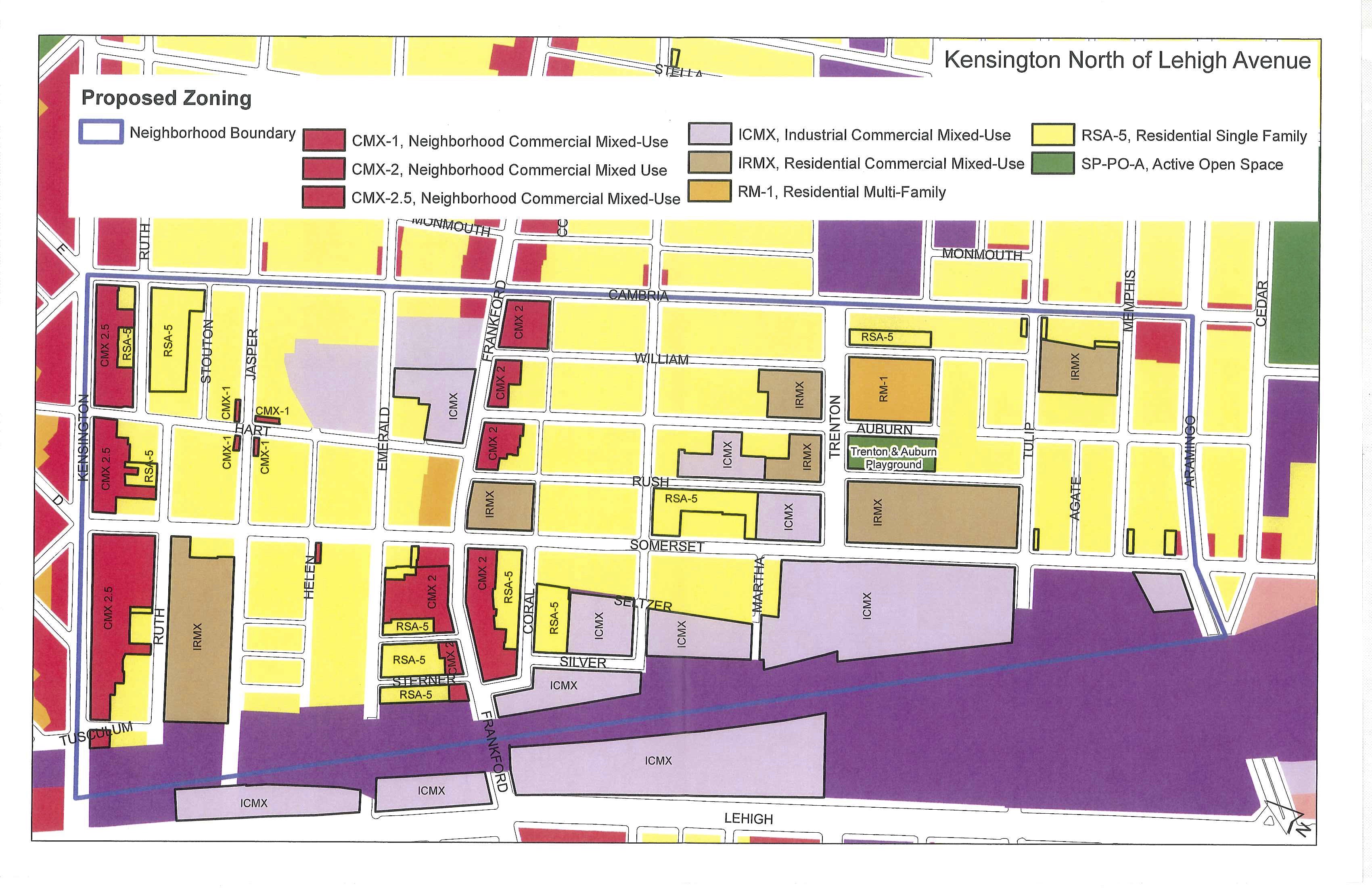Scrap yard fight in Kensington won’t end with rezoning

On Monday night, the Philadelphia City Planning Commission (PCPC) gave the members of Somerset Neighbors for Better Living (SNBL) some good news regarding the future of three scrap yards located north of Lehigh Avenue.
After listening to neighbors’ concerns about pollution and crime around the scrap yards, the PCPC is recommending a zoning change for the parcels of land used by Philadelphia Scrap Metal, at Amber and Silver streets, and K & A Auto Salvage and Philadelphia Metal & Resource Recovery, located next to each other at Somerset Street and Trenton Avenue. If City Council approves the changes proposed, those areas would be rezoned from Medium Industrial (I-2) to Industrial Commercial Mixed-Used (ICMX), a category that allows light industry, warehouses, and anything that could exist on a commercial corridor (stores, restaurants, daycares, etc.). PCPC is also recommending rezoning for several other parcels in the neighborhood from Medium Industrial to Industrial Commercial Mixed-Use (ICMX) or Residential Commercial Mixed-Use (IRMX).
“A scrap yard could not be [there], no,” said planner David Fecteau from PCPC, answering the question everyone wanted to ask. He explained the differences between the current and proposed zoning on a map to a group of neighbors gathering around a table. “They could build a warehouse and store scrap metal and then ship it somewhere else. But you could not break down that scrap metal, you cannot melt anything down, you cannot rip any metal apart.”
The answer made everyone laugh in relief and congratulate each other, until someone else asked if that meant that the existing scrap yards would have to leave.
“No, as long as the scrap yards have all of their permits, they could stay,” Fecteau said. “But if the scrap yard went vacant, then the owners have a certain amount of time to reactivate it.” A new scrap yard would not be permitted to open on properties zoned for Industrial Commercial Mixed-Use.
Fecteau also made clear that if some of the scrap yards decide to sell their business, the buyer could continue using it as a scrap yard. “If it goes vacant though, then they can’t do the scrap yard anymore,” he said.
“Basically what you’re saying is that it’s never going to be over with the scrap yards,” said SNBL’s president, Carlos Morales Mitti, frustrated.
“They’ve been there for years, I don’t think they’re going anywhere,” another neighbor added.
Philadelphia Scrap Metal is right behind Mitti’s house and he’s been dealing with trash, smoke, noise and crime daily, for years.
“I’m disappointed, really,” Mitti said after the meeting. “They [the scrap yards] have the power to decide what they’re going to do with that, no matter how the neighbor continues to be affected by it.”
Marty Gregorski, director of the Planning Commission’s development division, explained to PlanPhilly in an email that as a grandfathered non-conforming use, a scrap yard that is abandoned for three years or less could be replaced with another. “Over three years of abandonment and the property must be used as currently zoned. And to be clear, ownership doesn’t matter, so an active scrap yard could be sold to a new owner, and the permits would still be intact,” Gregorski wrote. “If the scrapyard was permitted via a variance or special exception from the Zoning Board of Adjustment and is discontinued for three consecutive years, then that variance or special exception expires, and the property must be used as currently zoned.”
Mitti said he and his neighbors are not against the scrap yards and their business per se, but they would like them to cooperate in keeping the area clean and safe. He said he has met with three different owners in the last five years, that he and other neighbors report violations almost every day and that they had also talked with the police.
“A couple of times we’ve seen that they [scrap yards] buy stuff stolen…. We even got the person on camera, and no response,” Mitti said. “Is a frustrating situation and there’s no hope.”
Scrap yards don’t mix well with residential blocks, Andrew Meloney, senior planner from PCPC, told PlanPhilly. And re-zoning is a good way to make sure that it doesn’t happen again, but it’s not going to immediately resolve problems frustrating neighbors.
“This is the first step,” Meloney said. “In the meantime, [the community needs to] keep talking to L&I, talking to Streets Department about trash that’s left out, and keep talking to the Council offices to keep pressure on them. Until they’re [the scrap yards] going to act as good neighbors, they should not be allowed to continue to pollute and just trash the street.”
Alison Kenner, assistant professor at the Center of Science, Technology and Society at Drexel University, has been reporting on environmental and health issues around the scrap yards in the River Wards since 2013, through door-to-door surveys and Philly 311 mobile application. Most of the neighbors’ complaints and reports were about smells, smoke, dumping, and truck traffic, she said, and she would like the city to monitor the air quality that permeates those blocks where a perpetual dust cloud exists.
“They need something more refined to see how pollution is being emitted by the scrap yards,” Kenner said after the SNBL meeting.
Kenner and Russell Zerbo, an advocacy coordinator with the Clean Air Council, have been testing how effective Philly 311 is to respond to this issue, because that’s how neighbors are asked to report scrap yards violations. The results have been mixed, they say.
“I don’t know if it was designed to deal with issues like this,” Kenner concludes. “Rezoning is not going to be the way to deal in the short term with the scrap yards’ issues. We’re going to need to find other city policies and regulations.”
WHYY is your source for fact-based, in-depth journalism and information. As a nonprofit organization, we rely on financial support from readers like you. Please give today.






